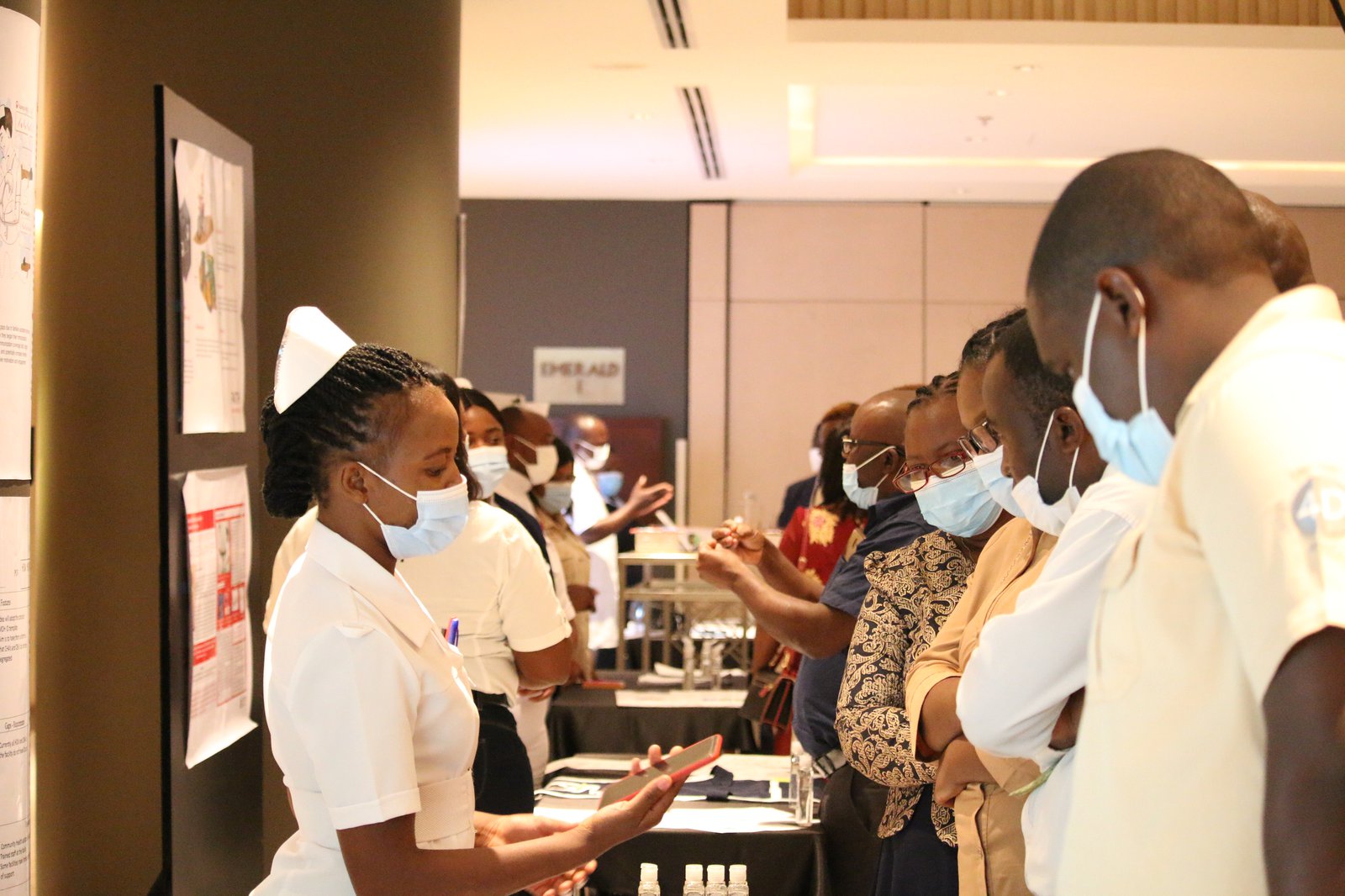On November 12, 2021, PATH Living Labs Initiative, in collaboration with frontline immunization health care workers, hosted representatives from the Zambia Ministry of Health (MOH) and other partner organizations at their first open day event focusing on the power of innovation, design, and impact. PATH’s Living Labs Initiative accelerates the pace of health innovation to ensure that all communities have the solutions they need to live healthy lives through co-creating with users to rapidly design, test, and scale solutions to their long-standing challenges using principles of human-centered design (HCD).
The event served as a platform not only to disseminate learnings and display the potential of HCD, but also to receive guidance from the MOH and confirm our efforts from stakeholders such as donors, health care workers, the community, and other partners. The event featured successful stories highlighting the Living Labs co-creation of solutions to motivate and engage health care workers to maximize the use of HCD as part of a wider model for performance improvement.
“Data are already showing promising results that the health care workers are very committed to their work in the communities despite having unfavorable work conditions, which shows how creative they are and deserve to be applauded”— Brian Taliesin, global director of Living Labs.

Helen Shibeleka, a nurse from Sianyolo Rural Health Centre, presented the WhatsApp Dashboard, a concept that allows facilities to capture and share vaccination information for children from outside their catchment areas. Photo: PATH/Chilowekwa Shike.
Putting the end user at the center of design and a rapid approach
Living Labs embodies PATH’s new strategy, which repositions community and country engagement at the onset of design and during the whole innovation process. The result—a commitment to the solutions by those who use them.
A unique aspect of this event involved health workers sharing their ideas in a session of ‘sprint dating’ with stakeholders. In the sprint dating, health workers from various districts showcased ideas that they had co-created to improve health care delivery to the stakeholders, using visuals and demonstrations.
“I’m happy that the sprint dating component was part of the agenda because I had the chance to share ideas to many key stakeholders. The Living Labs approach of using HCD to improve health care services was so well received”— Tracy Naulapwa, a health worker from Kasongole Rural Health Facility
Despite the emergence of COVID-19, the Living Labs team continued to grow and provide impactful solutions. In just two years, the team now has over 36 designs and innovation specialists across sub-Saharan Africa with a team of 11 in Zambia running 25 active projects across 10 health areas.
“Due to its rapid start-up and ideation process, Living Labs answered the call for urgent requests related to COVID-19 response and vaccine rollout over the past year such as feedback from health workers on the COVID-19 vaccine label”— Dr. Nanthalile Mugala, PATH’s chief of Africa region
Trusted partnerships to advance health equity
PATH welcomed the attendance of several MOH representatives, who underscored the importance of addressing inequalities in health service delivery, thereby responding to sustainable development goals that aim at explicitly improving health for all populations without leaving anyone behind.
Representing the MOH Permanent Secretary, Dr. Andrew Silumesi, Director of Public Health at the MOH, emphasized that inequity denies the principle set out in the World Health Organization constitution of the right to the highest attainable standard of health by compromising freedoms and entitlements of individuals.
“HCD is a problem-solving process that understands the human factors and contexts surrounding a particular challenge and we value this partnership with PATH that promises to advance health equity”— Dr. Andrew Silumesi, Director Public Health, MOH.
